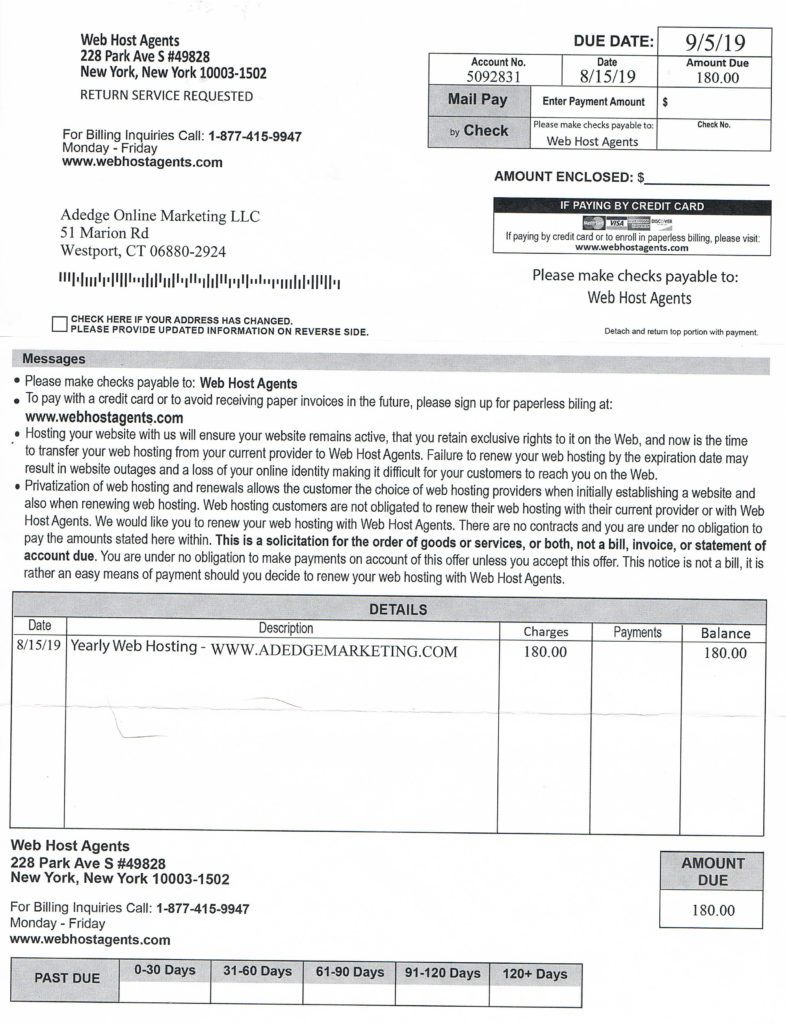Avoiding the unethical digital marketing minefield
The Internet allows marketers to reach a global audience, expanding their networks and growing their brands in ways unimaginable just a few years ago.
It also has created a much larger opportunity for scammers and unethical companies to take advantage of consumers and businesses.
Good marketing can involve education, promotion, persuasion, and even “puffery”, pushing the boundaries of persuasion by exaggerating benefits. While marketing must always be legal, it should also be ethical. Unfortunately, not all organizations work that way.
Above all else, ethical marketing is honest and transparent. It does not use deception to trick someone into buying a product or service. It does not involve subterfuge to convince someone to buy something they don’t need.
The American Marketing Association states that “marketers are expected to embrace the highest professional ethical norms and the ethical values implied by our responsibility towards multiple stakeholders (customers, employees, investors, peers, channel members, regulators and the host community.)” The AMA identifies core values as honesty, responsibility, fairness, respect, transparency and citizenship.
Unethical behavior ignores the above values. There are many examples of unethical behavior, but most center on some form of dishonesty or lack of transparency.
We recently received an example of deceptive marketing from a company pitching website hosting services. We got a letter in the mail appearing to be an invoice. It included a due date and a balance of $180 for annual website hosting. The text of the letter stated, “This is a solicitation for the order of goods or services, or both, not a bill, invoice, or statement of account due. You are under no obligation to make payments on account of this offer unless you accept this offer.” But the letter clearly was designed to appear to be a bill, invoice or statement of account due. This is a perfect example of legal behavior that is not ethical.
Similarly, some digital marketers have turned to the unethical practice of writing or buying fake reviews. As we have discussed here over the past two weeks, consumers increasingly are relying on consumer reviews and comments as they decide whether and what to buy. As a result, online reviews and endorsements are becoming ever more important to brands and marketers. Responsible marketers encourage real customers to leave positive reviews. Ethical marketers can hire or otherwise work with influencers, but they must disclose the relationship. It’s OK to pay someone to write or say nice things about your brand, but if you do, you need to let the consumers know you compensated them for their efforts.
Another common ploy that most of us have encountered involves phone solicitations where a company claims that, “We’re calling from Google. Your Google Maps (or Google Plus) listing is out of date and we need to update it”. There are a few reasons why any call like this is a clear red flag. 1) Google doesn’t call businesses about problems with their map listing. 2) What is the problem with the Google Maps listing? There rarely is one. 3) Here at AdEdge, we get calls like this all the time. Do these people think a highly awarded digital marketing agency needs help with their Google listing? 4) Long story short, they are almost always looking to overcharge businesses for services they don’t need, gain control of their Google listing and then extort them additional moneys.
Have you ever been called by a company promising to “Get you at the top of Google”? There are a number of problems with this one. 1) Without keyword and competitive research, an organization is unable to determine if they can get you to the top of Google. 2) What keywords are they proposing to have you rank at the top for? Most will run your name as a keyword. The problem with this is twofold. 1) Getting your business to rank #1 for your business name is very easy. 2) It is unlikely to generate any new business for you since most customer who search for you are already customers!
The same unethical digital marketing companies who promise you a top rank in Google often promote unethical practices in SEO called “black hat” tactics. One common example of this is offering to build thousands of inbound links to improve your SEO. Yes, inbound links are good for SEO but doing it in this way is not approved by Google. Google rewards one-way, inbound links from popular, relevant websites. If Google catches you practicing a black hat tactic, (which they almost always will) you will likely get banned from Google. You heard that right – a total ban from Google where you don’t show up at all for any search, not paid, organic or on a map. We’ve seen it happen. Don’t fall victim. Better yet, if you hear from an agency who is promising the world or something specific you’d really like to do, do you own search for a local, ethical and highly awarded agency like AdEdge Digital Marketing.
As a marketing technology still in it’s infancy, digital marketing is the “wild west” of marketing, complete with unique rewards …and perils. If you want to succeed, find yourself a trusted guide; a digital marketing firm with lots of experience and values that match yours.
If you’d like to learn more about how to build an ethical digital marketing effort, or if you’d like a free evaluation of your digital marketing footprint, and ideas to improve it, feel free to contact our principal, Anthony LoFrisco, Jr., former board member of the Better Business Bureau of CT. Call (203) 682-4585 or email Anthony at anthony@adedgemarketing.com to schedule a call or a visit.


